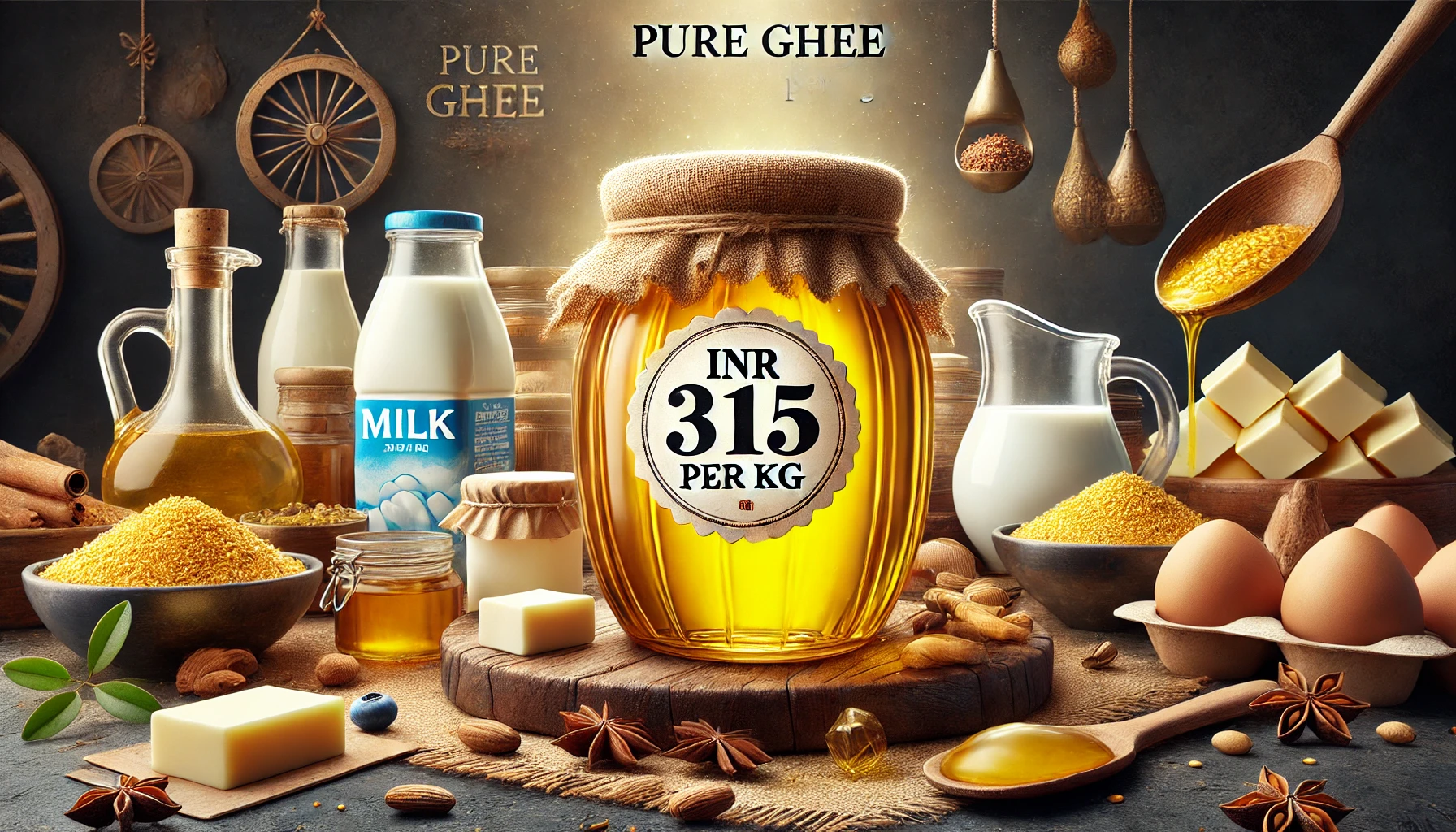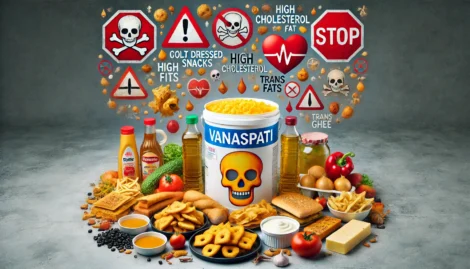- You have no items in your shopping cart
- Subtotal: ₹0.00

Is supplying pure ghee at INR 315 per kg realistic?
Pure Ghee at INR 315 per Kg onwards. In the latest controversy involving the Tirumala Tirupati Devasthanam (TTD), it has come to light that the ghee supplied to the temple was priced at INR 315 to INR 319 per kg, as detailed in reports and data released by authorities. The ghee was supplied by A R Dairy Food Private Limited, sourced from Sri Vyshnavi Dairy Specialities, who in turn procured it from Bhole Baba Organic Dairy Milk Private Limited.
A critical point of contention here is whether it is feasible to sell genuine, pure ghee at such low prices. Given the standard costs involved in procuring raw materials like butter or milk fat, the mechanical processing costs, labor, quality assurance, packaging, and transportation, it becomes evident that a ghee price of INR 315 per kg is remarkably low.
Is It Realistic to Supply Pure Ghee at INR 315 per KG?
To understand this better, let’s break down the economics of producing pure ghee.
- Raw Material Costs: The cost of milk from which ghee is derived is significant. High-quality cow or buffalo milk is required to produce pure ghee, and the amount of milk required to extract even a small amount of ghee is substantial. On average, it takes 20-30 liters of milk to produce one kilogram of ghee. In India, the price of high-quality milk is approximately INR 50 per liter, and this figure rises based on the purity and origin of the milk. Thus, the cost of milk alone would come close to INR 1000-1500 to produce 1 kg of ghee.
- Labor & Production: Traditional ghee production requires skilled labor, particularly if made using methods like hand-churning or the traditional bilona process. Even machine-made ghee has high production costs when you factor in the electricity, machinery, and labor required to process milk into ghee.
- Quality Certification & Packaging: In the case of supplying ghee to TTD or any other major institution, there are added costs related to certification, ensuring the product meets food safety standards such as FSSAI, and other quality assurances. Packaging in food-grade containers for bulk supply is an additional cost.
Ghee at INR 315 per kg: Signs of Adulteration?
Considering these costs, how could Sri Vyshnavi Dairy supply ghee at rates between INR 315 and 319 per kg? It’s almost impossible for a legitimate supplier to produce pure ghee at such a low cost unless:
- Adulteration: The ghee is mixed with lower-quality fats, oils, or vanaspati (hydrogenated vegetable oils) to reduce the cost of production. Adulterated ghee is known to cause health issues and does not provide the nutritional benefits that pure ghee offers.
- Lower-Grade Ingredients: Some manufacturers may cut corners by using cheaper, low-grade milk or butter. This practice compromises the quality and health benefits that pure ghee provides.
Comparison with Market Rates
The market price for high-quality desi ghee ranges from INR 800 to INR 1200 per kg in retail stores, depending on the source (cow vs. buffalo milk), the process (hand-churned vs. machine), and certifications. Mass-produced ghee brands may offer slightly lower prices due to large-scale production, but even then, prices rarely fall below INR 500 per kg for genuine ghee.
This raises serious questions about the pricing strategy used by suppliers in the TTD ghee controversy. If the ghee is indeed adulterated or produced using lower-grade ingredients, it could compromise not just the authenticity of the product but also the religious sentiments tied to the sacred laddus offered to devotees.
Impact on Health and Devotees
Pure ghee is celebrated for its health benefits, including aiding digestion, improving immunity, and being a rich source of fat-soluble vitamins. Adulterated ghee, however, can lead to a range of health issues such as digestive discomfort, increased cholesterol, and long-term cardiovascular diseases due to the presence of trans fats or other harmful oils.
Given the sacred significance of the laddus made with ghee at TTD, the controversy over adulteration is even more disturbing. Devotees trust that the food offered to the deity and later distributed as prasadam is pure and uncontaminated. If the ghee used is compromised, it not only affects the health of millions but also violates the religious sanctity of the offering.
The Need for Transparency and Authenticity
For institutions like TTD, where food is an integral part of religious ceremonies, it is essential to ensure transparency in the sourcing of raw materials like ghee. Suppliers must be held accountable for the quality of their products, and rigorous testing should be conducted to verify the authenticity of the ghee being used.
Institutions and consumers alike should insist on purchasing ghee from trusted, authentic sources to avoid the risks associated with adulterated products. Companies like GheeStore prioritize purity and traditional production methods, ensuring that customers receive the highest quality ghee without any adulteration.
GheeStore produces ghee using the traditional bilona method, which preserves the essential nutrients and provides all the health benefits that pure ghee is known for. With products that are FSSAI certified and lab-tested for purity, GheeStore offers a safer, healthier alternative to mass-produced or adulterated ghee products.
In conclusion, while it may be tempting to opt for cheaper ghee, especially when purchased in bulk, it’s crucial to consider the potential health risks and the importance of religious sanctity in institutions like TTD. Always choose trusted brands and suppliers to ensure that you’re getting the quality you pay for.



